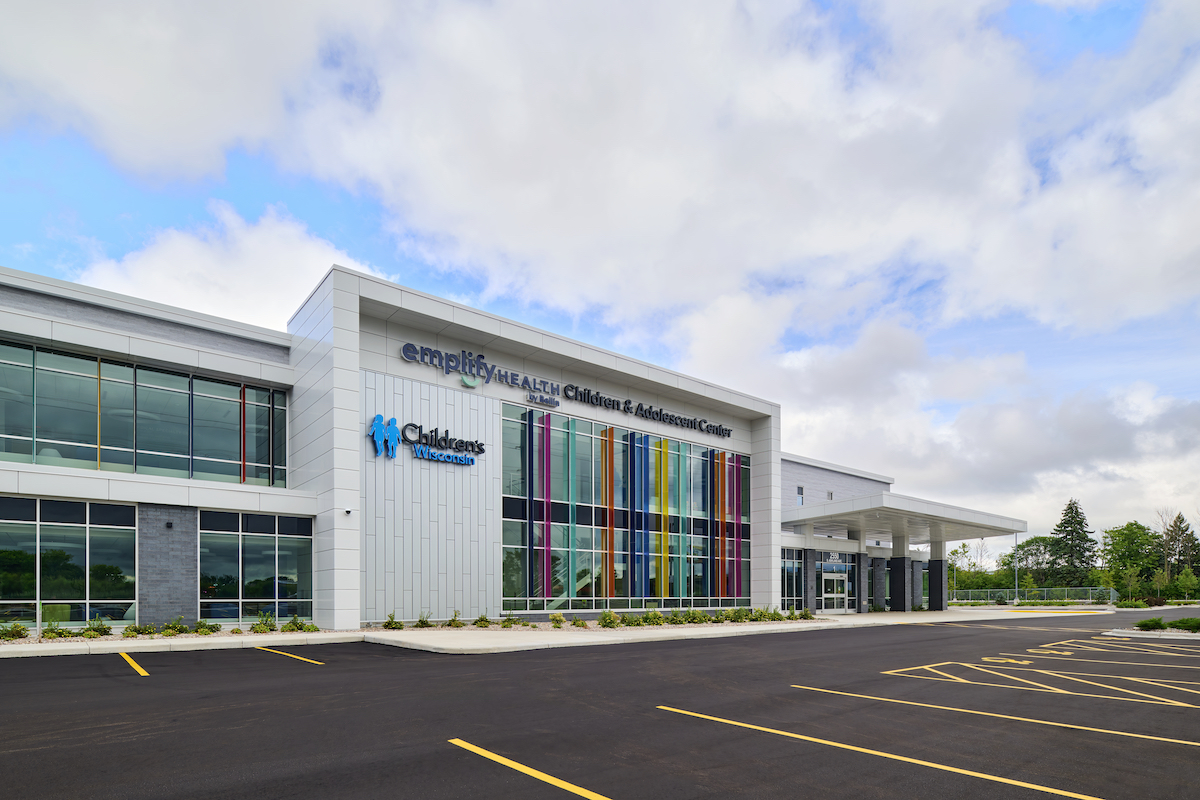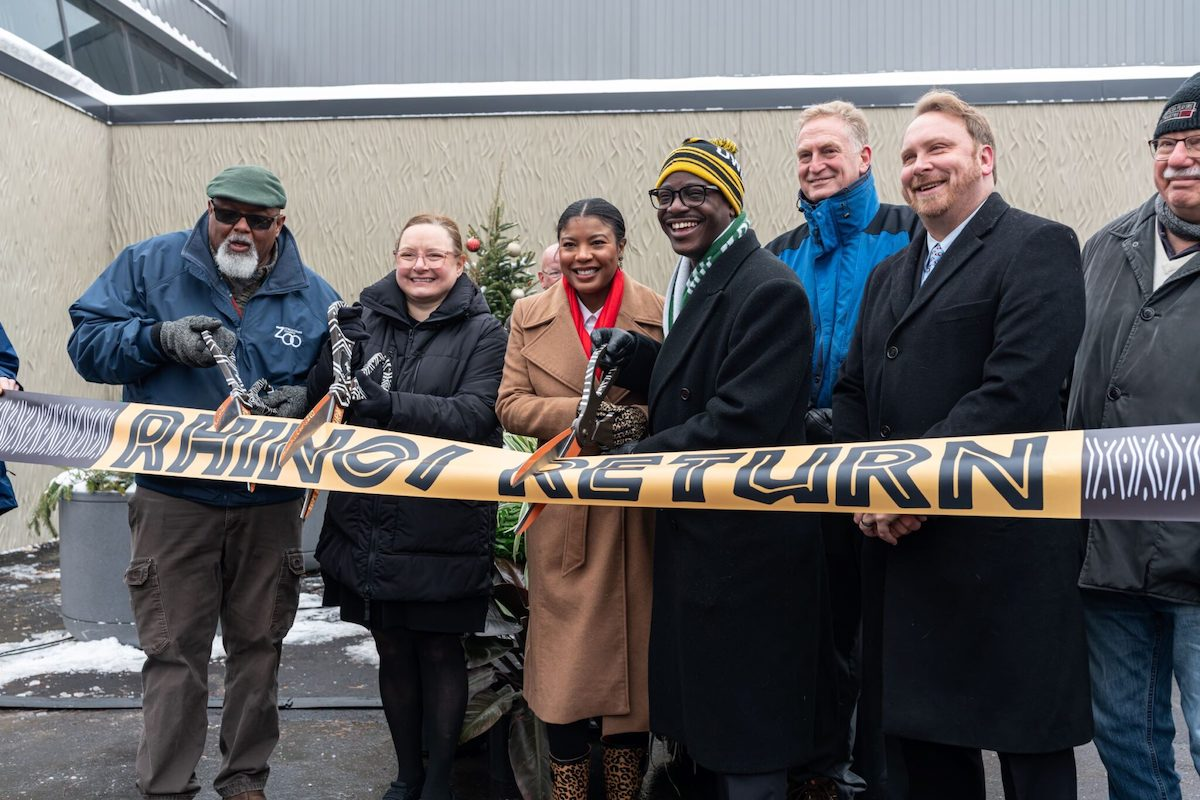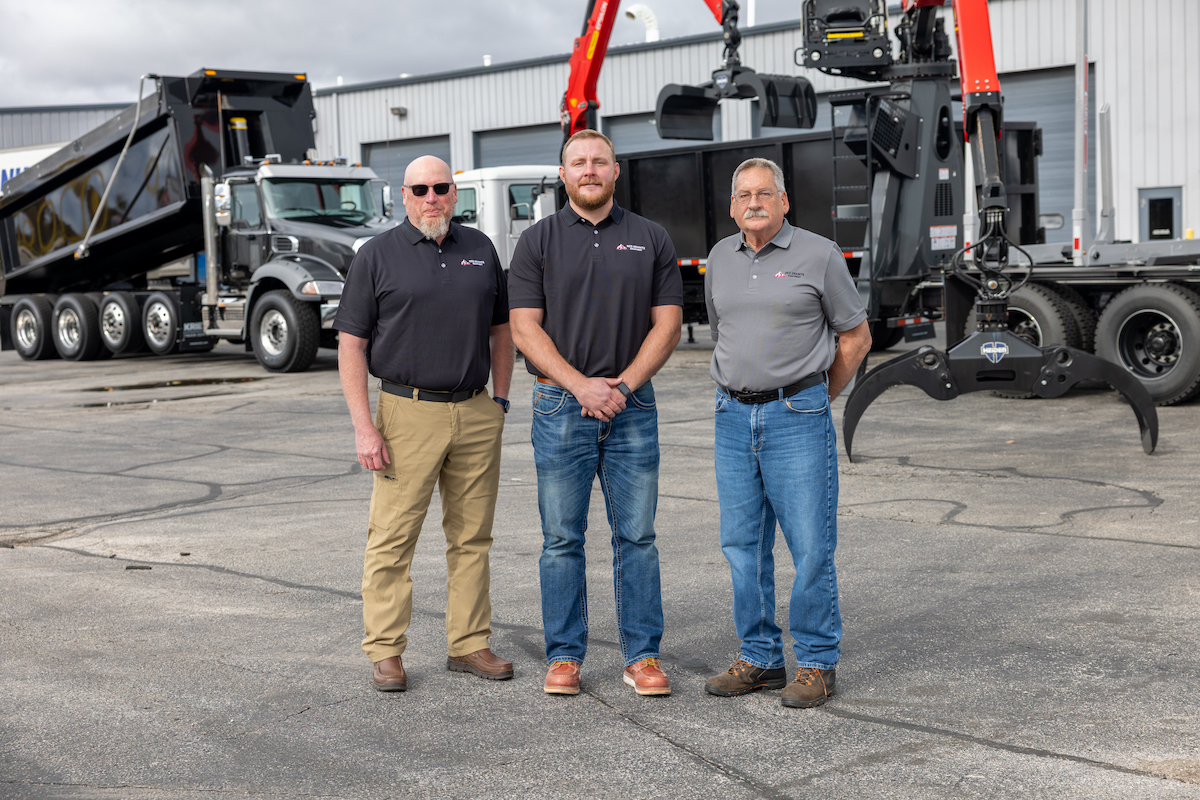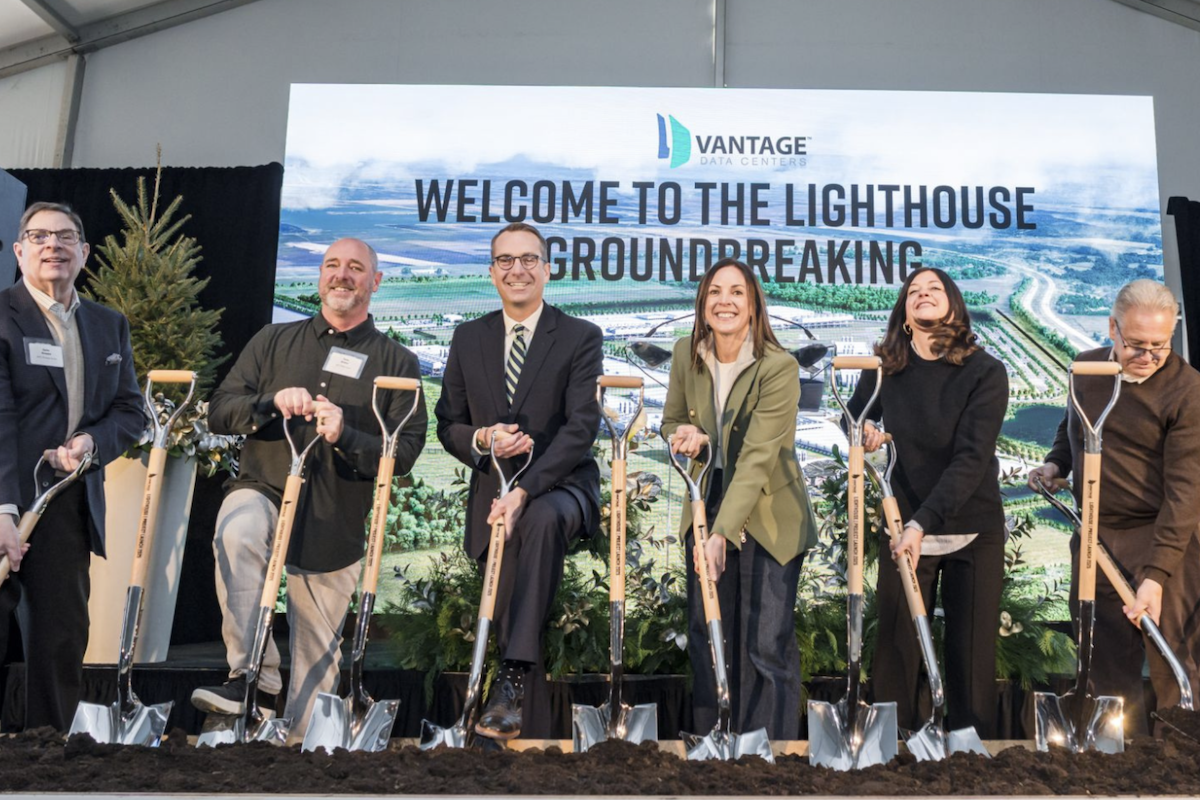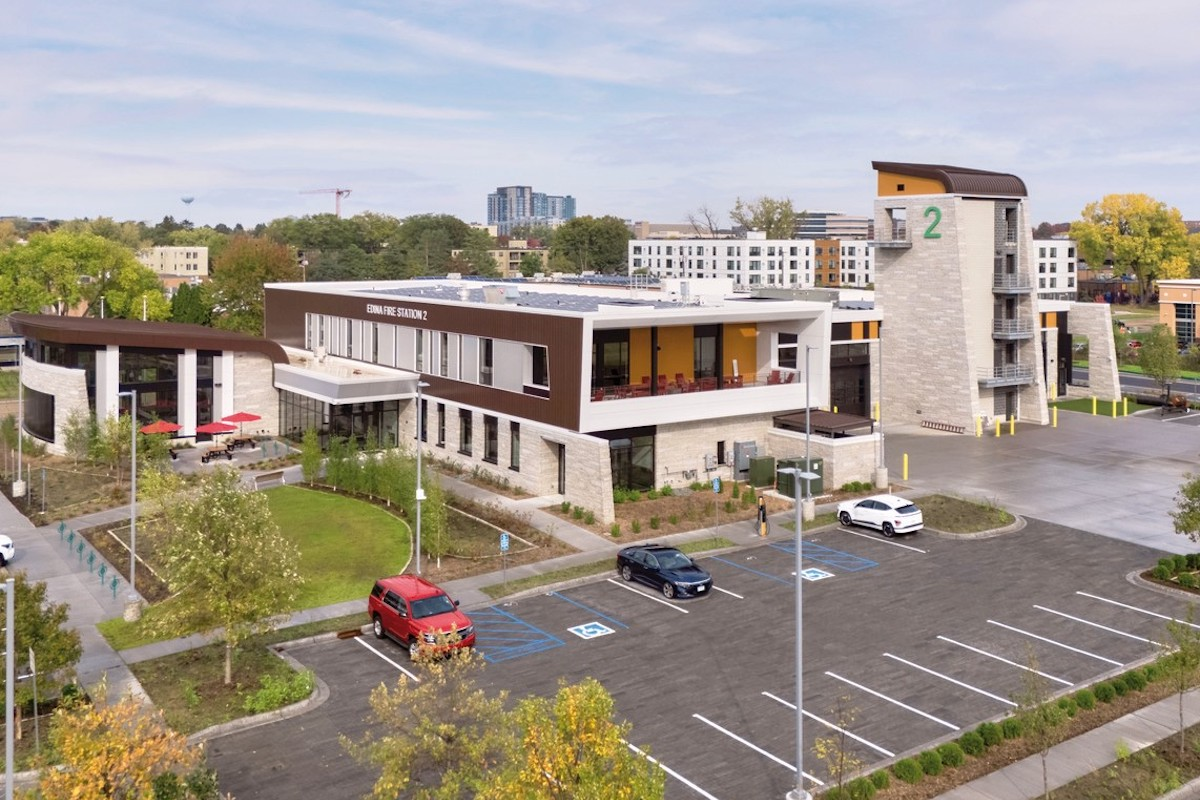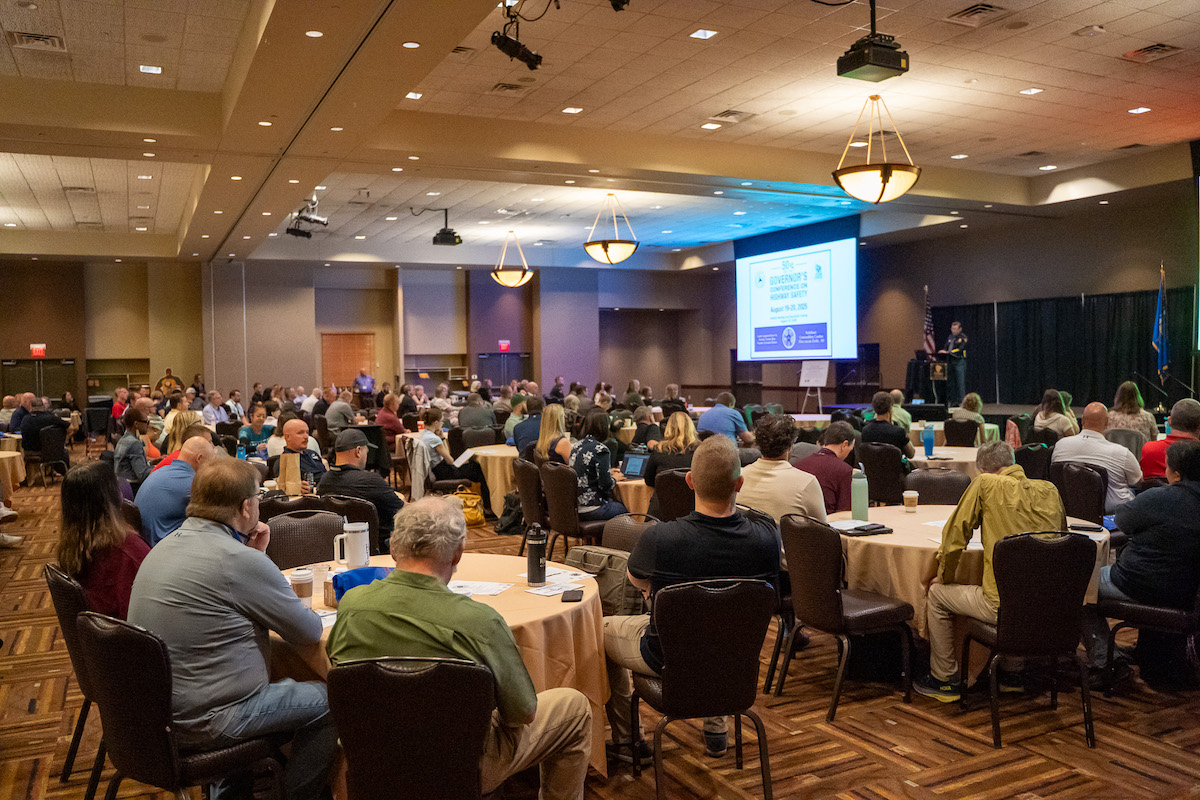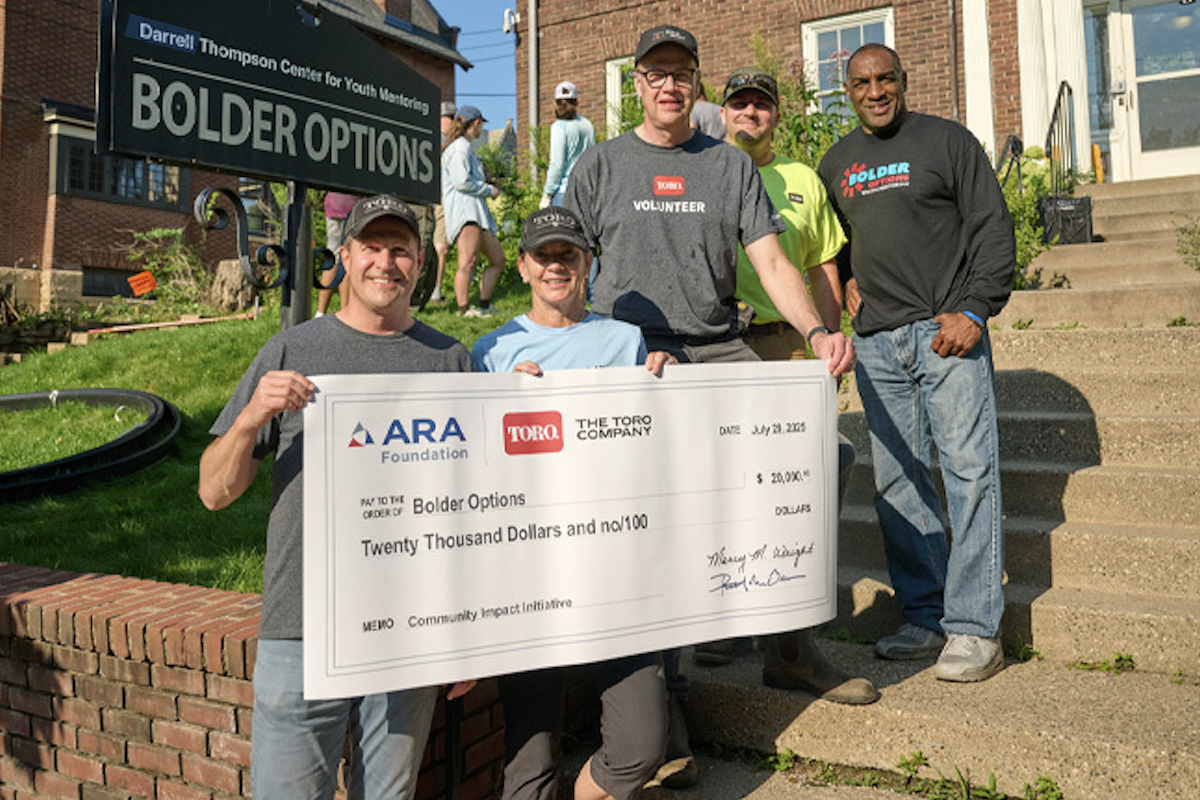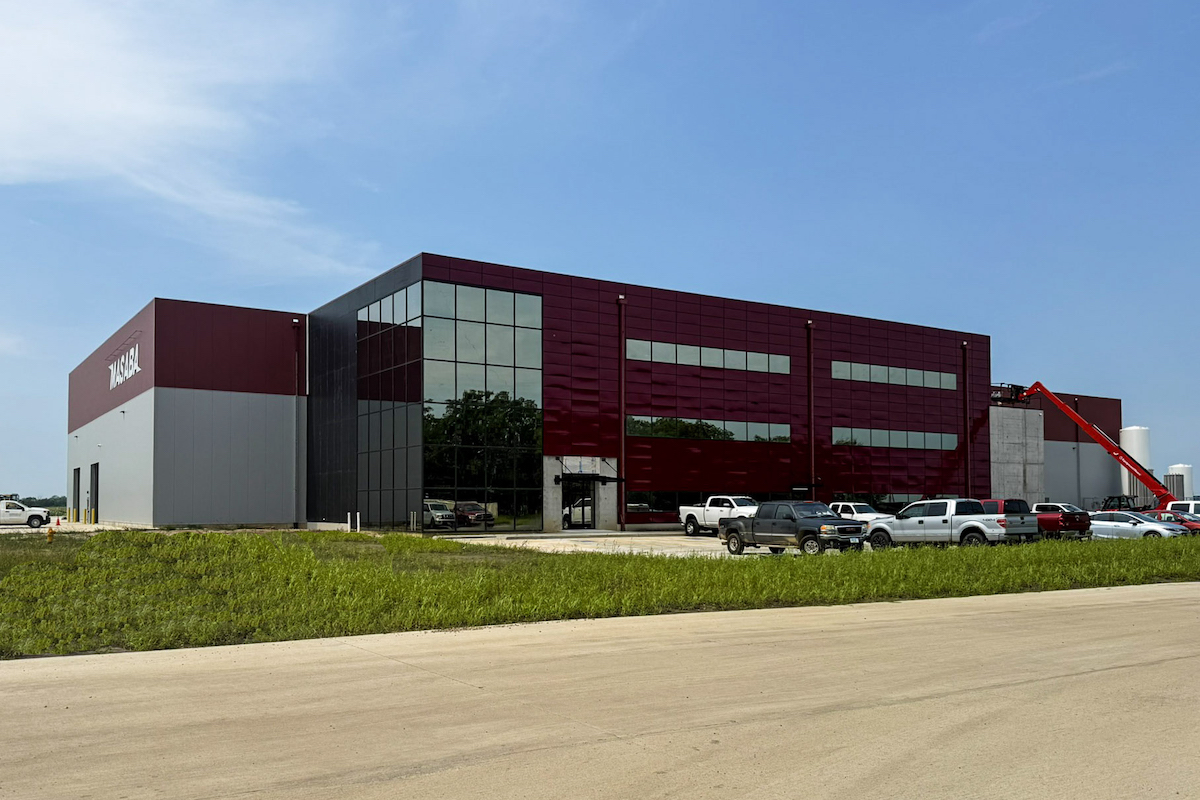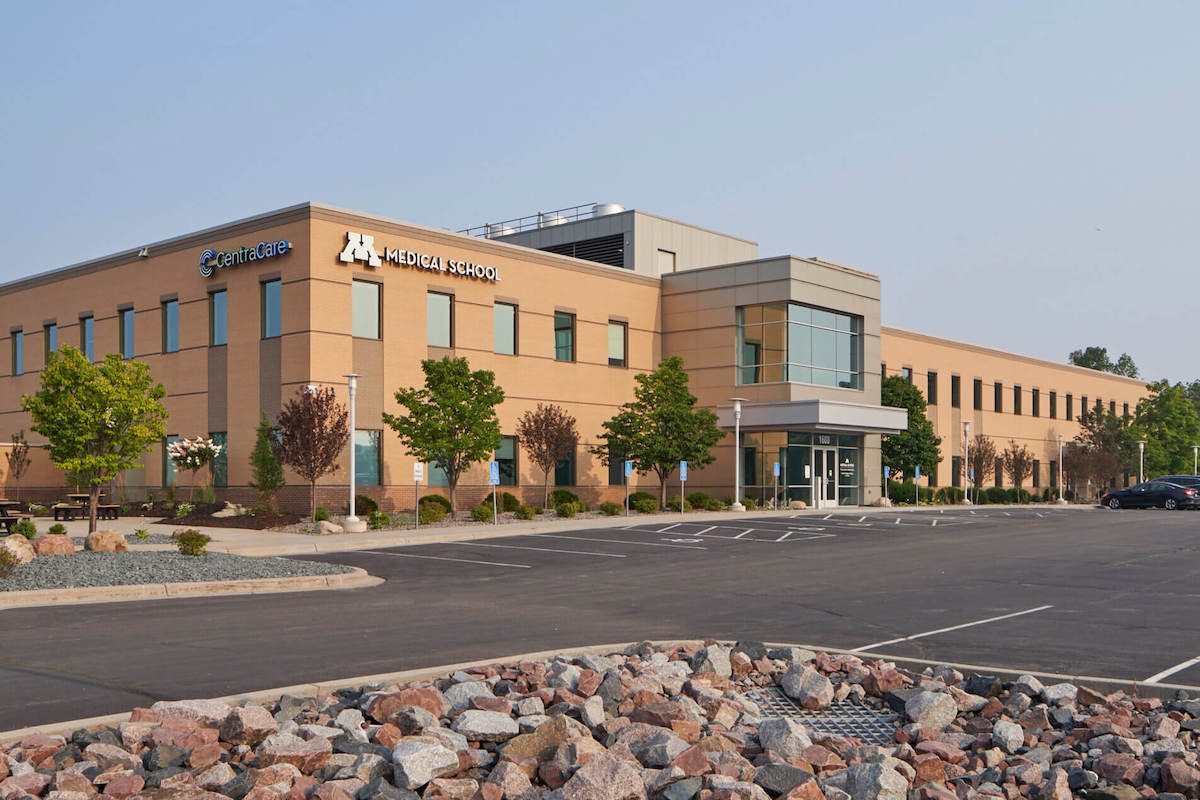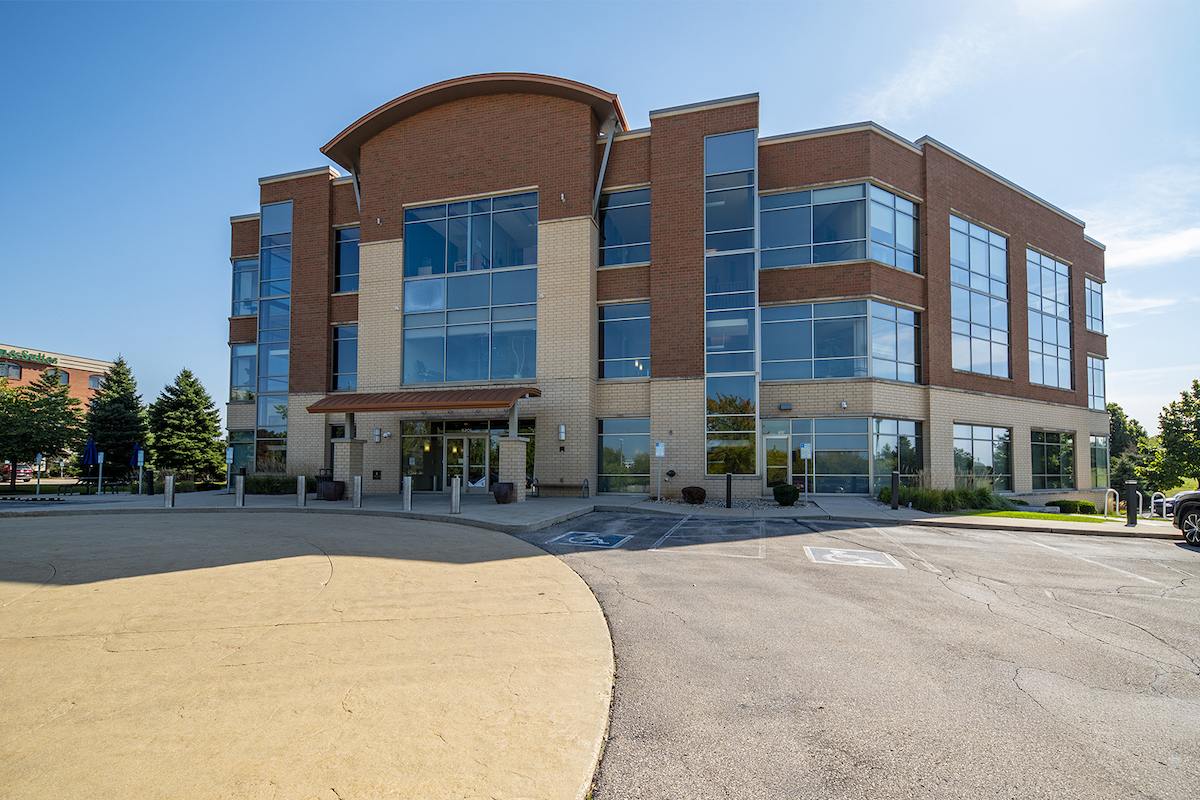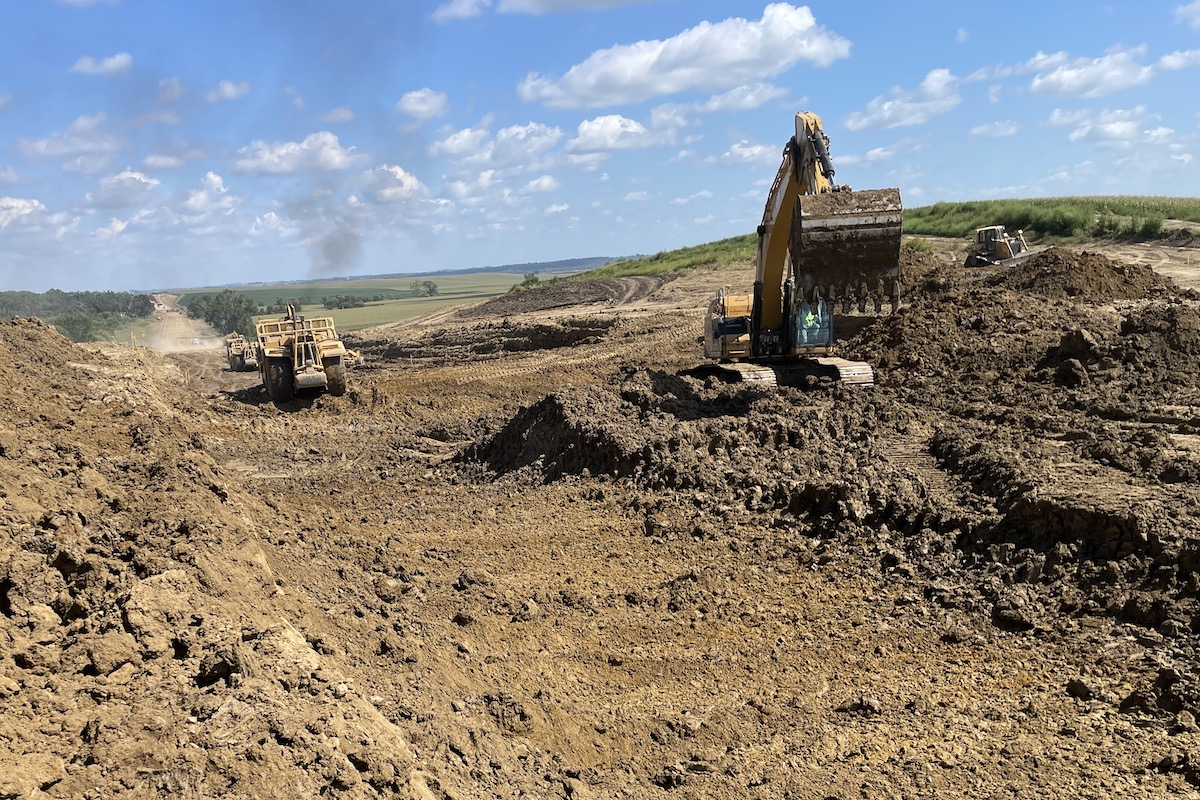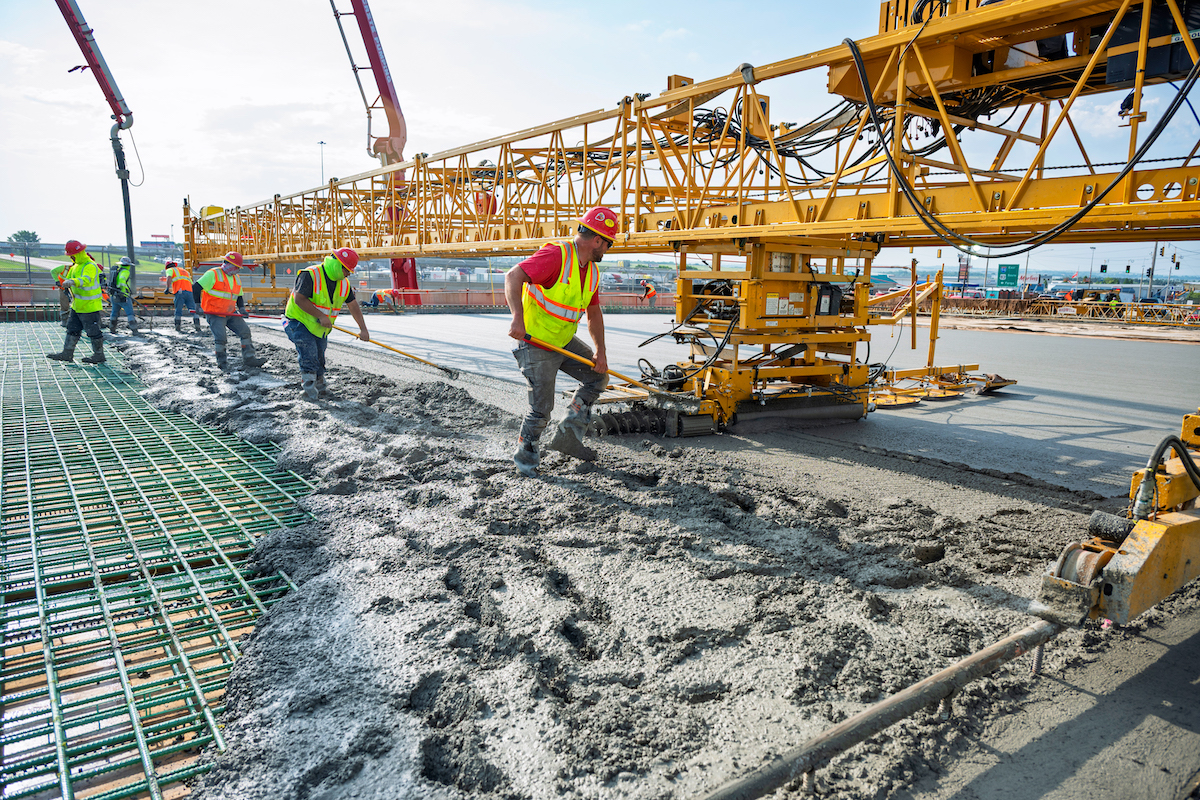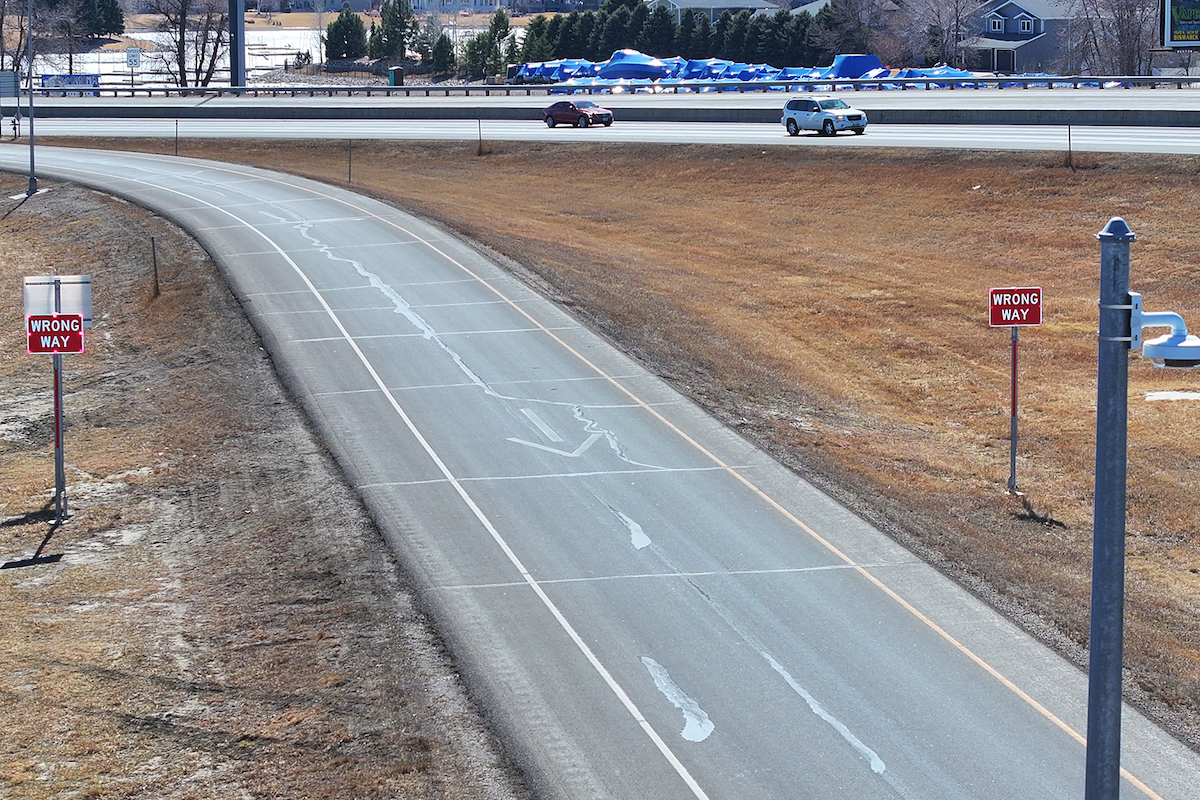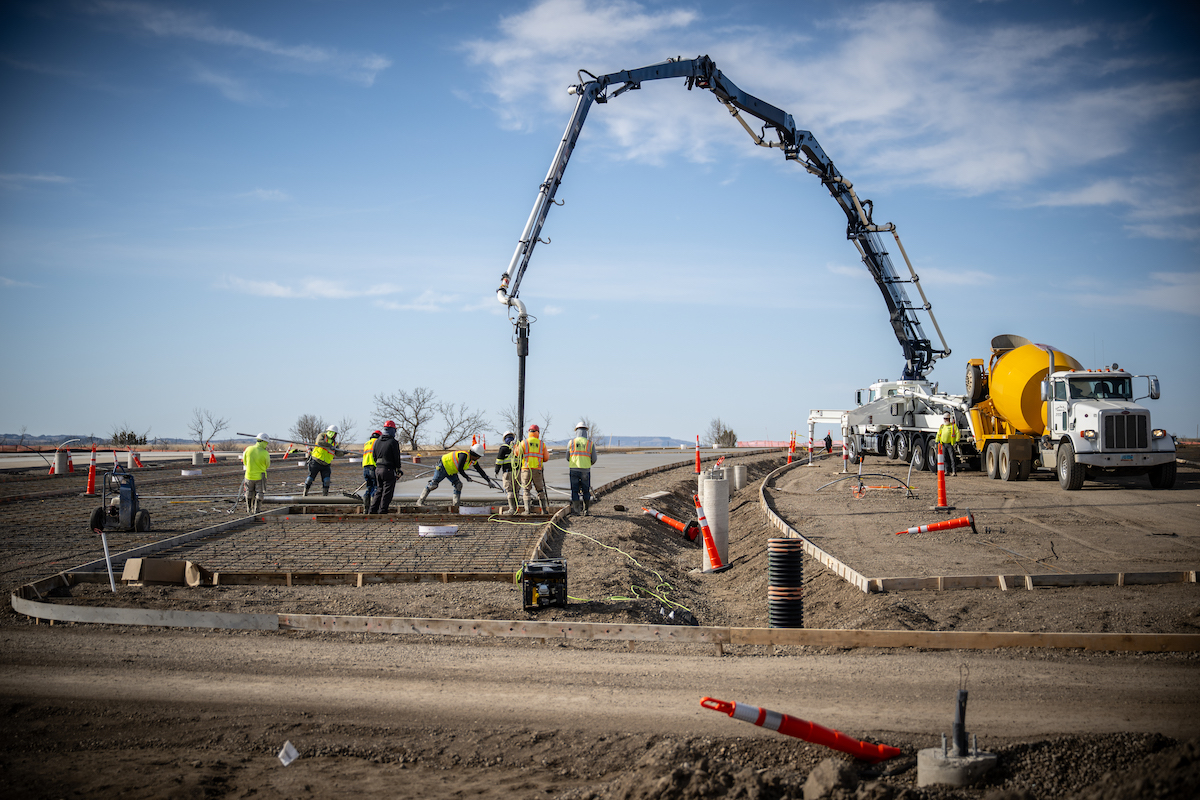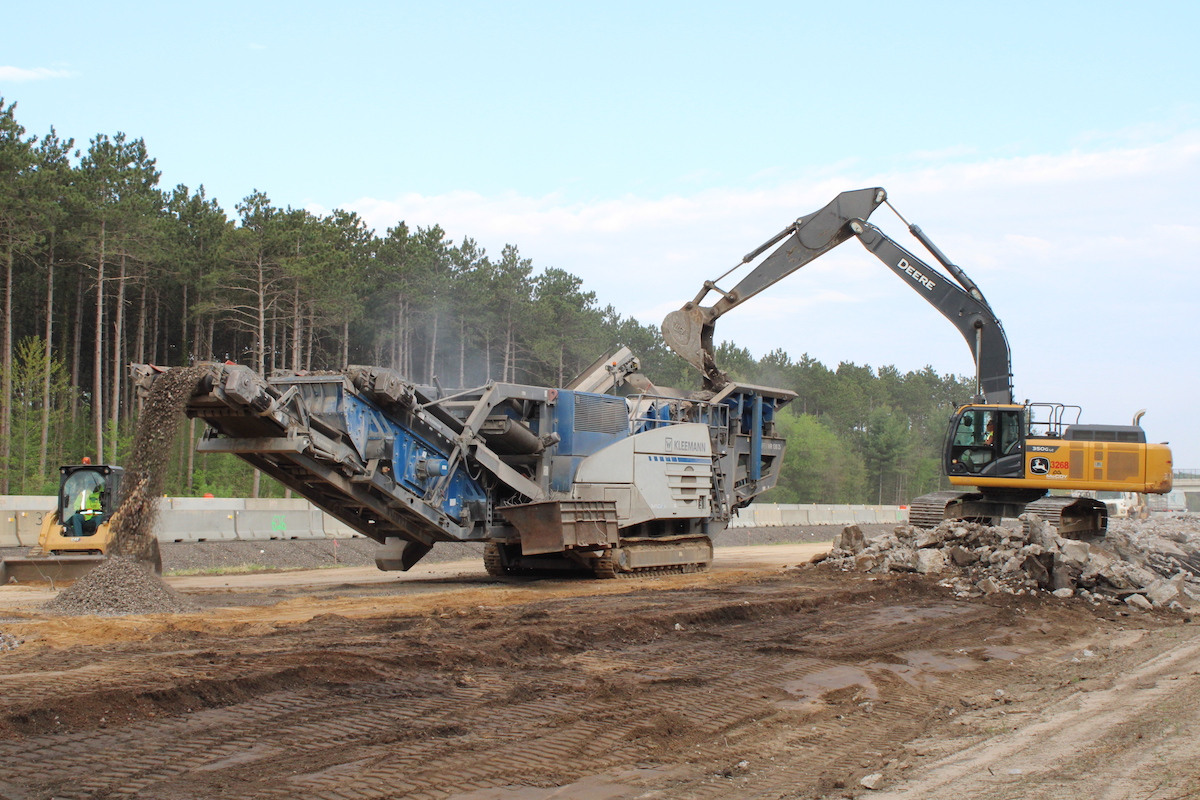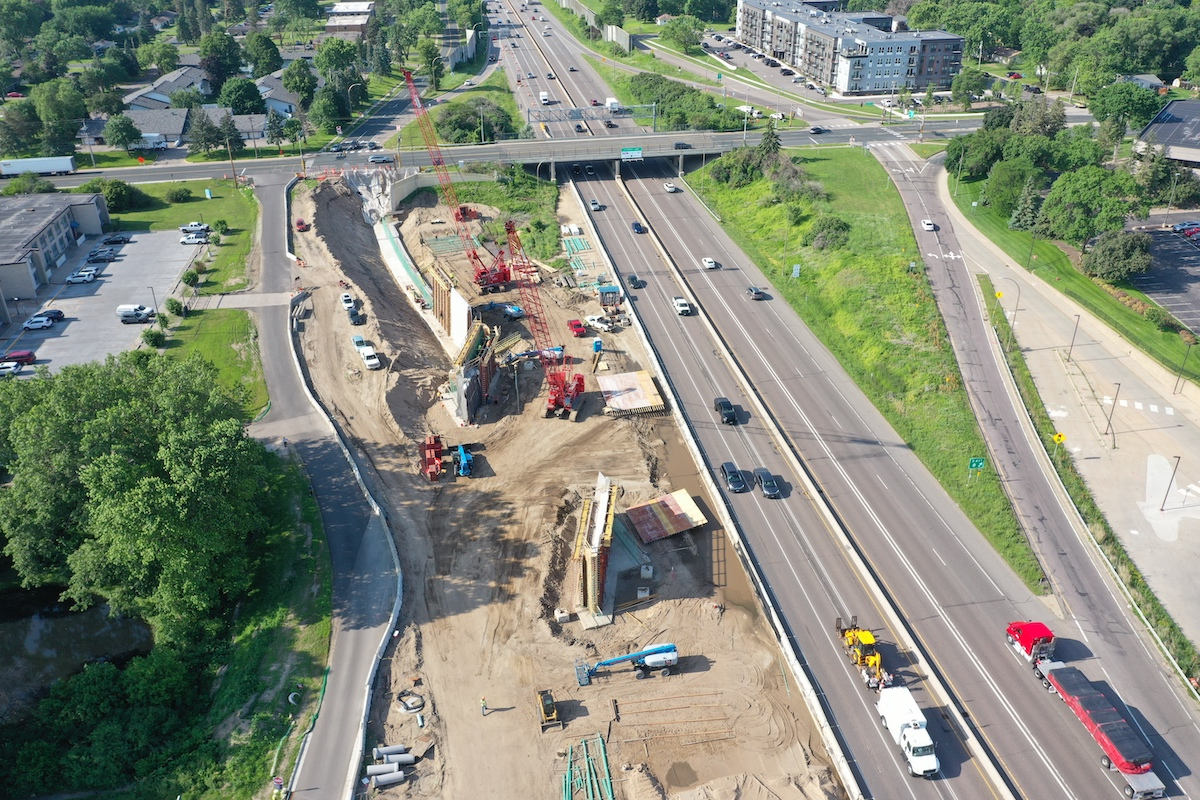With an average daily traffic count of 33,000 vehicles, the stretch of roadway that was worked on is the busiest in the Upper Peninsula. Therefore, MDOT is particularly careful to stay on top of issues on U.S. 41/M-28.
It’s been 20-plus years since the last major resurfacing, but work has been done since then. Nevertheless, the route was clearly in need of repair. “The road was in a condition where it needed to be upgraded to extend its life,” says Alan Anderson, a Construction Engineer for MDOT, who served as the project engineer on the project. “The road was in poor condition and the potholes required regular maintenance to be performed.”
Anderson adds it was not an operational issue, yet MDOT wanted to apply the fix before conditions worsened.
“The route is a key economic and commercial area for the county, so it’s important to have good access,” says Dan Weingarten, a Communications Representative for MDOT.

| Your local Komatsu America Corp dealer |
|---|
| Road Machinery and Supplies Company |
Of the 2.8 miles of resurfaced road, two-thirds underwent one treatment, while the final third underwent another. The top layer of existing asphalt was removed, and 4.5 inches of asphalt was put down. New curbs were installed and storm drains rehabilitated as well. Resurfacing was chosen for this portion of the project because of the existing concrete base. Essentially, the old concrete was repurposed as a base for the road. This created significant savings on the project and reduced the immediate impact to business access.
The final third of the resurfacing involved a more significant upgrade. The pavement was completely removed and replaced. The team put down 18 inches of sand as a sub-base, followed by 6 inches of gravel, and 6 inches of asphalt.
“That portion of the road was done between two recently completed roundabouts, so we did this to meet up with the other pavement in the area and it was in worse condition than the other two-thirds of the project route,” Anderson says.
Created in 2013, the Iron Ore Heritage Trail is a 47-mile year-round multi-use interpretive trail that's located in the area. The trail, which crosses the Marquette Iron Range, is used by those who bike, walk, run, hike, snowmobile, cross country ski, birdwatch, and more.
As part of a previous MDOT project in Marquette Township, an underpass was built to bring the trail access across the highway. The current project made additional upgrades to the trail system. The 10-foot-wide nonmotorized path built along with this project now runs from Wright Street to Commerce Drive, connecting the Iron Ore Heritage Trail to future nonmotorized improvements planned by the township. “The path significantly improves access to one stretch of the trail for bicyclists and pedestrians,” Weingarten says.

| Your local Trimble Construction Division dealer |
|---|
| SITECH Dakotas c/o Butler Machinery |
| Fabick CAT/WI |
Access points to commercial locations had to be maintained. “We couldn’t shut everything down and had to make sure the retail outlets could remain in operation,” Anderson says. To keep constant access, some retail outlets were asked to share entry with a neighbor if there was connecting access.
The coordination involved in maintaining access did slow down production, according to Anderson. Plus, some work was done at night.
“We did some night work – milling and paving at night – to keep it to period of time where traffic is much less,” Anderson says. “This type of work needs more space to function, therefore, it would have impacted traffic and access greatly.”
In the same vein, traffic signals were adjusted. Some signals had their timing changed, while others were taken out completely. The team also changed some direct cross routes. Besides access issues, these changes were made to help maintain traffic flow
Another project challenge relates to underground work. Some of the existing information the team had for the underground facilities, including the water sewer main, were not accurate. The team had to modify storm sewers on the fly.

| Your local Link Belt dealer |
|---|
| Hayden-Murphy Equipment Co |
For some of the underground work, the team did something unconventional. Instead of replacing the storm sewers and cross culverts, they injected grouting to stabilize deteriorated areas to ensure they were viable. The decision to repair rather than replace has economic and green benefits.
The project began in May 2021 and was complete in November, just a couple of weeks after the original completion date. There were the underground surprises as noted above and some minor delays getting the concrete down. These delays were because of staffing issues related to COVID-19. “There were not enough employees from a subcontractor for a little while, but the prime contractor, Payne and Dolan, worked through that to help out and get it done,” Anderson says.
Payne and Dolan have worked with MDOT and Anderson many times over the years. “They’re experienced, do good quality work, and they put together a solid crew.”
With the project complete, residents can enjoy a smoother resurfaced pavement and a better-quality ride. The roadway life has been extended, and MDOT has less need to perform regular maintenance on the route. Pedestrians and bikers now have safer access to enjoy the trail. A win for all types of commuters.

















